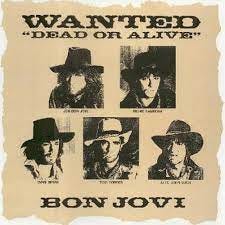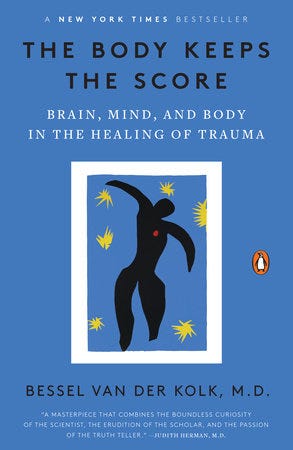Getting Your Mind Ready for the Gig Economy
It's like having a stable job but without the stability and sometimes without the job!
Oh hello. I didn’t see you come in.
Please remember that our show exists because of listener donations. If you’ve donated, THANK YOU. If not, it’s easy: go here, pick a level that works for you, then select DEPRESH MODE from the list of shows.
The freedom of not depending on a boss or an employer or a check or benefits or hey wait a second
In June of 2020, I was laid off from the company where I worked for many years. It was because of economic reasons, they said. I had just bought a car the day before, had one kid in college, and another going into senior year of high school. If you need me, I’ll be biting my tongue in half to avoid writing 20,000 words more about that at this point thank you very much.
It was rough. Messed me up some in the mind. I’m working on that.
Now, I pretty much gig. Not temp work exactly, more trying to grow my own business that consolidates all my mental health work into one entity. So it’s this newsletter that supports the podcast, working with other companies for their podcasts, writing, speaking, doing a bunch of things. But in none of these do I have a boss, exactly. I have editors, I have partners, I have agents, but I’m a cowboy on a steel horse I ride except the steel horse is a keyboard and a microphone and I am not a cowboy.
It’s Monday morning and I was up late last night. Words still foggy; no boss will correct them.
And bosslessness is great in plenty of ways and filled with Daily Constant Fear in a bunch of other ways.
That’s what this week’s show ended up being about. It’s a talk with actor John Ross Bowie, a dear friend of mine and someone who has dealt with some mental health challenges, about how he navigates the uncertain gig economy of being a professional actor.
Then I’m joined by Harvard Business Review’s Morra Aarons Mele, who talks about some practical steps to keep your anxiety and depression from going Godzilla.
Morra is the host of the Anxious Achiever podcast.
Figuring out the recipe having already added the ingredients
This week’s show came together a little differently than most. Usually, we have a guest and some idea of what they’ll say and then build a show around that person and their angle. Sometimes, we have an issue and then book guests that illuminate that issue, usually from a variety of perspectives.
This time, it just started with a conversation with John Ross Bowie because I figured we’d have something to talk about. And then in the conversation and ensuing listens, we kind of brushed away the sand to reveal what we thought was the show. Then brought in Morra to expand on that. She kind of downplayed what she could contribute but then gave us more than expected. Morra got into her own depression and how it matches up with her efforts toward personal branding and making a living.
Got deeper than I expected.
Aimee Mann? I mean… man.
Yeah, I never got that headline phrased into the joke I wanted but I’m going to let it go. Can’t dwell on it. Too busy. Because in just a couple of hours, I’m interviewing my pal Aimee Mann about mental health and her kind of amazing new album, Queens of the Summer Hotel. It’s music from a musical adaptation of the book Girl, Interrupted.
Can’t sit around composing joke headlines when there’s all this rich and sad beauty to put in my ears.
Here’s a conventional article about Aimee and her album.
Here’s a more personal and very wonderful article about it by Carrie Courogen.
From that second one:
Queens of the Summer Hotel is an album full of trouble, crises and compulsions, suicide and self-harm; troubles encountered in the real world and the troubles suffered at the hands of those who are supposed to protect you. Across its fifteen tracks, she masterfully weaves small tales about desperation and dissociation and depression, about shame and trauma and the realization that some girls are just born happy and some are not. It’s the kind of subject matter she handles best: navigating a path through the dark, thorny brambles of being alive. All the while, the gravity of the situation hangs thick in the air, impossible to ignore, sometimes indulged in, but just as often given a blunt, deadpan acknowledgement.
I’ve worked with and/or interviewed Aimee maybe half a dozen times and I used to be very intimidated by her. Because she’s so talented and writes these songs that dig in deep to amazing places. She did nothing to consciously intimidate me. It was my thing.
Then I realized that she’s super funny also and that her sense of humor and personality match that of my oldest sister. I think a lot can be remedied if you figure out the analogy of how to talk to people.
Is there mental health stuff on her album? I don’t know, man. Let’s look at the titled of her new single.
Okay then!
It’s not that the city is making you crazy…
It’s that you were already going crazy so you decided to live in the city.
I oversimplify.
A new study says that genetic factors hold more weight than previously thought when it comes to predispositions for some psychiatric illnesses. It had been believed that the intensity of urban life was more of a cause for these situations.
In a study published in October in the journal JAMA Psychiatry, researchers find one’s genetic risk for mental health conditions can influence where a person chooses to live. This isn’t to say that environment doesn’t play a role in the development of mental health conditions. Instead, the study team calls for more integrated approaches when it comes to exploring, and addressing, what causes these conditions — therapeutic steps that consider all the factors that result in a diagnosis.
I really don’t like the music of the late Glenn Frey but I do like comedy.
That one’s just there on account of I like Willie Nelson.
Bessel van der Kolk lives!
I’m glad for another chance to invoke the name Bessel van der Kolk. The work of Bessel van der Kolk is culturally ubiquitous! Look at all those likes:
Bessel van der Kolk really does live, of course. He is not dead, that Bessel van der Kolk.
It really is an excellent book but sometimes hard to get through. It’s all about trauma so he describes a lot of people’s trauma. Of course. He has to. But shit, man, there’s some traumatic trauma in there.
From Bessel van der Kolk.






